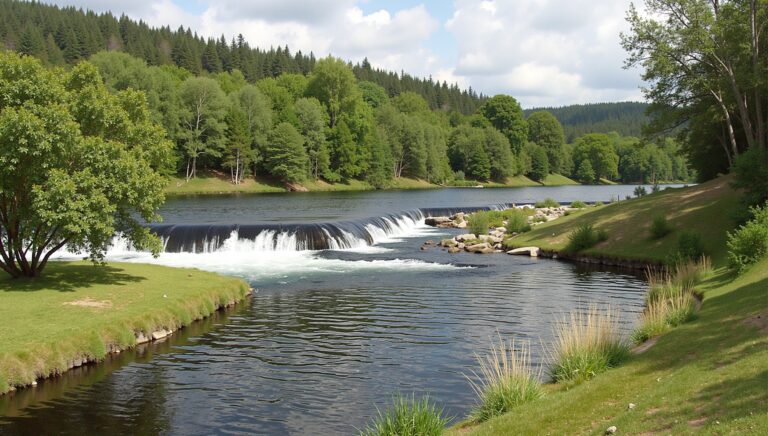Investing in long-term investment properties can be a lucrative way to achieve financial independence and build wealth over time.
Whether you are a first-time investor or an experienced real estate mogul, understanding the intricacies of long-term rental properties is crucial for maximizing your returns.
This guide will take you through everything you need to know about long-term investment properties, from the benefits of investing in them, to the key factors you should consider before diving in, to effective management strategies that will ensure your investments remain profitable.
By the end of this article, you will have a solid foundation to make informed decisions in your long-term real estate investment journey.

Key Takeaways
- Long-term investment properties provide stable cash flow and potential for appreciation.
- Investing in rental properties can offer tax benefits and reduce overall financial risk.
- Location, property type, and tenant demographics are crucial factors in selecting a profitable investment property.
- Various financing options are available, including traditional mortgages and real estate investment loans.
- Effective property management ensures tenant retention and maximizes rental income over time.
Understanding Long-Term Investment Properties
When considering the appeal of Costa Rica real estate, understanding long-term investment properties is crucial for potential buyers.
These properties not only offer a tranquil lifestyle in a beautiful environment, but they also serve as a strategic financial move.
Long-term investment properties in Costa Rica typically include residential homes, condos, and even commercial spaces that can yield steady rental income over time.
Investors benefit from the country’s growing tourism sector, which attracts both expatriates and vacationers, making such properties in high-demand locations even more lucrative.
Additionally, Costa Rica’s stable political climate and strong legal framework for foreign property ownership provide peace of mind, ensuring that investments are safeguarded.
By exploring the diverse market and evaluating potential properties, savvy investors can harness the advantages of long-term investment properties to build wealth and secure their financial future.
Benefits of Investing in Long-Term Rental Properties
Investing in long-term rental properties can offer numerous benefits for both seasoned investors and those just beginning to explore the Costa Rica real estate market.
One of the primary advantages is the potential for steady cash flow; by acquiring long-term investment properties, investors can enjoy a reliable income stream generated from monthly rents.
This stability not only helps in covering the mortgage and property management costs but can also lead to significant returns over time.
Additionally, Costa Rica’s favorable climate and stable political environment attract both expatriates and locals seeking long-term rental options, further enhancing the appeal of these properties.
Furthermore, long-term investment properties typically require less management compared to short-term rentals, allowing owners to enjoy a more hands-off approach while still benefitting from property appreciation.
In a country renowned for its stunning landscapes and biodiversity, investing in long-term rental properties not only promises potential financial rewards but also the chance to be part of a vibrant and growing community.
‘The stock market is filled with individuals who know the price of everything, but the value of nothing.’ – Philip Fisher

Key Factors to Consider Before Investing
When exploring Long-term investment properties in Costa Rica, it’s crucial to consider several key factors to ensure a successful purchase.
First, evaluate the location; areas with high tourist traffic such as Tamarindo and Manuel Antonio are often prime for rental opportunities.
Next, understand the legal framework for foreign investors, as Costa Rica has enticing laws that support foreign property ownership.
Additionally, analyze market trends to gauge potential appreciation in property value and rental yields.
It’s also wise to connect with a reputable local real estate agent who can provide insights into hidden gems and help navigate the buying process.
Lastly, consider your investment goals—whether it’s for vacation rentals or retirement living—as this will guide your property selection and investment strategy.
Strategies for Selecting the Right Property
When exploring Costa Rica real estate, particularly for those interested in long-term investment properties, having a solid strategy is crucial.
Start by defining your investment goals, whether it be rental income, property appreciation, or both.
Once you have a clear objective, research various locations across the country, focusing on areas with appreciating property values and demand for rental properties.
Consider factors such as proximity to amenities, tourism hotspots, and future development plans, as these can significantly influence property value over time.
Additionally, getting familiar with local regulations and market trends is essential, as well as enlisting the help of local real estate professionals for expert guidance.
By using a strategic approach, investors can confidently navigate the diverse and lucrative offerings in the Costa Rican real estate market.

Financing Options for Long-Term Investments
When considering long-term investment properties in Costa Rica, understanding the various financing options available can be crucial for making informed decisions.
Many investors are drawn to Costa Rica’s real estate market due to its thriving tourism industry, stunning landscapes, and favorable political climate.
However, securing financing can be complex, especially for foreign investors.
Traditional financing through local banks may require more paperwork and might not cater to expatriates, so exploring alternative methods is key.
Cash purchases are common, as they simplify the transaction process, but if you’re looking to leverage your investment, private lenders and international banks often provide loans tailored for foreign buyers.
Additionally, seller financing can be an attractive option, allowing buyers to negotiate terms directly with the seller.
It’s also advisable to consult with a local attorney or a real estate professional familiar with Costa Rican law to ensure that your investment is protected and that you’re making the most of available financing options to secure your long-term investment properties.
Managing Your Long-Term Investment Property Effectively
Managing your long-term investment properties in Costa Rica can be a rewarding yet challenging endeavor.
The success of your investment hinges on effective management practices that ensure your property remains appealing to potential renters while maintaining its value.
Start by understanding the unique market dynamics of Costa Rica, including seasonal trends and local demand, which can influence rental rates and occupancy levels.
Regular maintenance is crucial; investing in quality upkeep not only enhances the property’s aesthetic appeal but also helps prevent costly repairs in the future.
Additionally, consider hiring a reputable property management company that specializes in Costa Rican real estate.
They can handle day-to-day operations, tenant relationships, and legalities, allowing you to focus on growing your investment portfolio.
Lastly, staying informed about local regulations and tax implications pertaining to long-term investment properties is essential for maximizing your returns and ensuring compliance.
Frequently Asked Questions
What are long-term investment properties?
Long-term investment properties refer to real estate assets purchased with the intention of holding them for an extended period, typically several years or more, to generate rental income and appreciate in value over time.
What are the benefits of investing in long-term rental properties?
Investing in long-term rental properties can provide consistent income, tax benefits, property appreciation, and diversification of investment portfolio, making it an attractive choice for investors looking for stability.
What key factors should I consider before investing in long-term rental properties?
Key factors to consider include location, property condition, local rental market conditions, potential for property appreciation, and your financial goals and risk tolerance.
What strategies can I use to select the right long-term investment property?
Effective strategies include conducting thorough market research, analyzing comparable properties, assessing neighborhood trends, and considering the potential for renovation or value-add opportunities.
What financing options are available for long-term investment properties?
Financing options include traditional mortgages, hard money loans, portfolio loans, and cash purchases.
It’s important to assess which option aligns best with your investment strategy and financial situation.





